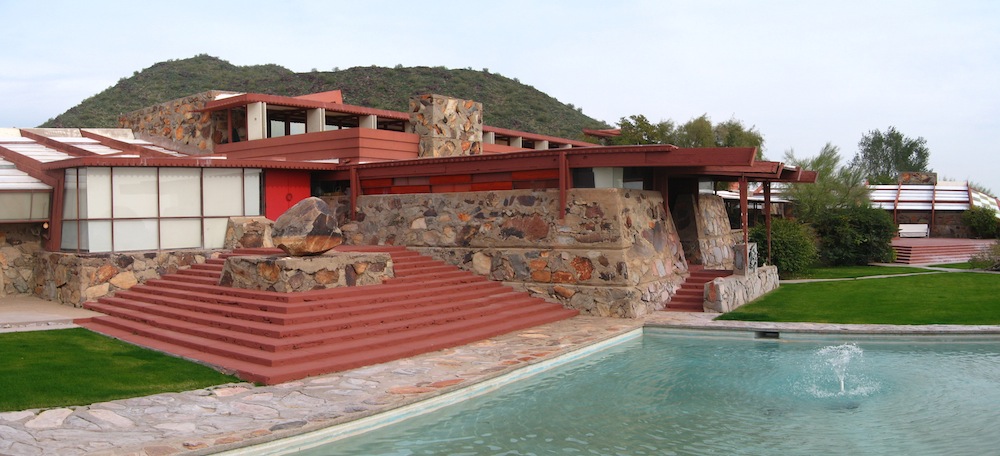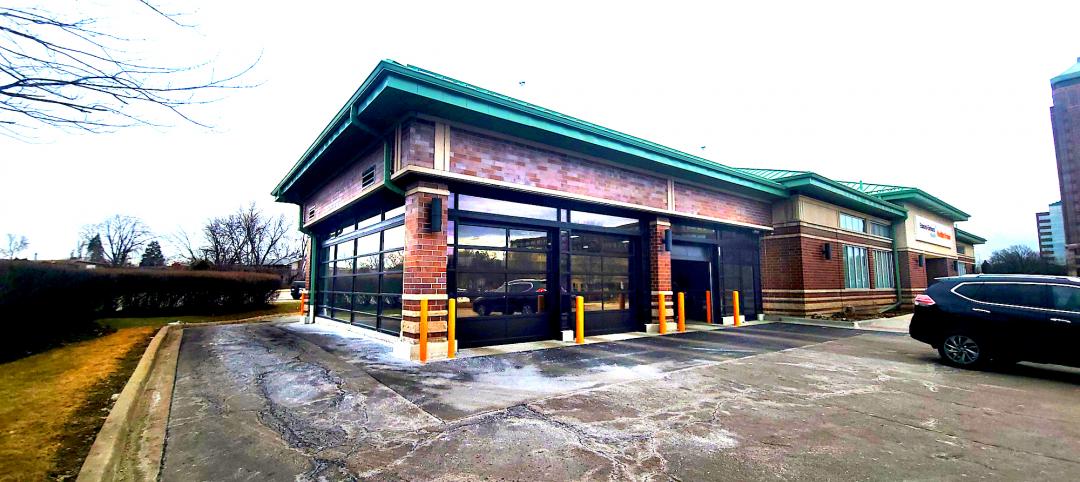The Frank Lloyd Wright School of Architecture at Taliesin announced today that it had reached almost 50% of the $1 million fundraising goal it needs to reach by the end of August on its way to independent status. The remaining $500,000 of these funds must be promised to the school by August 25 for the school’s Campaign for Independence to move forward.
In December of 2014, after an agreement between the Board of The Frank Lloyd Wright Foundation and The Frank Lloyd Wright School of Architecture, the School agreed to raise $2 million, with $1 million of it by the end of this month, in order to achieve the financial autonomy necessary to become an independent organization.
Accreditation for the school has been threatened because the Higher Learning Commission changed its by-laws and would no longer accredit schools that are operating divisions of larger institutions with multi-faceted missions.
The School’s professional M.Arch degree program offers graduate students design-intensive studio experiences at campuses in Taliesin West (Scottsdale, Ariz.) and Taliesin (Spring Green, Wis.). Over the last year, the school has revamped its curriculum to provide a better experimental graduate program in architecture. It focuses on learning how to make the human-made environment more sustainable and open. Students work with local communities to both design and build projects, and they make shelters that each student lives in for his or her final semester.
Accreditation for the school has been threatened because the Higher Learning Commission (HLC) changed its by-laws and would no longer accredit schools that are operating divisions of larger institutions with multi-faceted missions. Facing the possibility of the Frank Lloyd Wright School losing accreditation and potentially closing, longtime supporters suggested the possibility of raising funds to create and support an independently-incorporated school.
The Foundation Board agreed that, if the school's community could raise funds sufficient to demonstrate that the new organization would have “its own financial resources” (as explicitly required by the HLC’s by-laws), then spinning off the school would not present the same obstacles. The new, independent school organization would take ultimate fiduciary responsibility for itself.
As part of the new structure, the Foundation would donate over $1 million in facilities-related cash expenses every year, related to the school's use of Taliesin West and Taliesin as its campuses (at no cost to the school). The Foundation would also contribute an additional subsidy of $580,000 to the school in 2015, with decreasing levels of such additional transitional support over the next five years (but always continuing to cover 100% of annual facility-related expenses which total more than $1 million annually).
In order to achieve the desired independence and continue as a stand-alone School of Architecture, gifts and pledges for an initial $1 million in contributions must be received by August 25, 2015 – and gifts and pledges for a second million must be received by December 31, 2015.
Related Stories
Reconstruction & Renovation | Mar 28, 2022
Is your firm a reconstruction sector giant?
Is your firm active in the U.S. building reconstruction, renovation, historic preservation, and adaptive reuse markets? We invite you to participate in BD+C's inaugural Reconstruction Market Research Report.
Legislation | Mar 28, 2022
LEED Platinum office tower faces millions in fines due to New York’s Local Law 97
One Bryant Park, also known as the Bank of America Tower, in Manhattan faces an estimated $2.4 million in annual fines when New York City’s York’s Local Law 97 goes into effect.
Healthcare Facilities | Mar 25, 2022
Health group converts bank building to drive-thru clinic
Edward-Elmhurst Health and JTS Architects had to get creative when turning an American Chartered Bank into a drive-thru clinic for outpatient testing and vaccinations.
Higher Education | Mar 24, 2022
Higher education sector sees 19 percent reduction in facilities investments
Colleges and universities face a growing backlog of capital needs and funding shortfalls, according to Gordian’s 2022 State of Facilities in Higher Education report.
Architects | Mar 16, 2022
James Hoban: Designer and builder of the White House
Stewart D. McLaurin, President of the White House Historical Association, chats with BD+C Executive Editor Robert Cassidy about James Hoban, the Irish draftsman and builder who convinced George Washington to let him design and build the White House.
Architects | Mar 16, 2022
Diébédo Francis Kéré named 2022 Pritzker Architecture Prize recipient
Diébédo Francis Kéré, architect, educator and social activist, has been selected as the 2022 Laureate of the Pritzker Architecture Prize, announced Tom Pritzker, Chairman of The Hyatt Foundation, which sponsors the award that is regarded internationally as architecture’s highest honor.
Architects | Mar 10, 2022
Gyo Obata, FAIA, HOK Founding Partner, passes away at 99
Obata's career spanned six decades and included iconic projects like the National Air and Space Museum in Washington, D.C., and Community of Christ Temple in Independence, Mo.
AEC Tech Innovation | Mar 9, 2022
Meet Emerge: WSP USA's new AEC tech incubator
Pooja Jain, WSP’s VP-Strategic Innovation, discusses the pilot programs her firm’s new incubator, Emerge, has initiated with four tech startup companies. Jain speaks with BD+C's John Caulfield about the four AEC tech firms to join Cohort 1 of the firm’s incubator.
Architects | Mar 2, 2022
FGM Architects and LeMay Erickson Willcox Architects join forces
FGM Architects announced that LeMay Erickson Wilcox Architects, a 19-person architectural studio based in Reston, VA is joining their firm.
Architects | Mar 1, 2022
Alyson Steele Elected President and CEO of Quinn Evans
(2.25.22) Alyson Steele, FAIA, LEED AP, has been elected president and chief executive officer of Quinn Evans, a nationally recognized firm providing architecture, planning, interior design, landscape architecture, and historic preservation services. Steele has been with the firm since 1997 and previously served as executive vice president and chief design officer. She succeeds Larry Barr, FAIA, who will continue to serve on the board of directors.

















